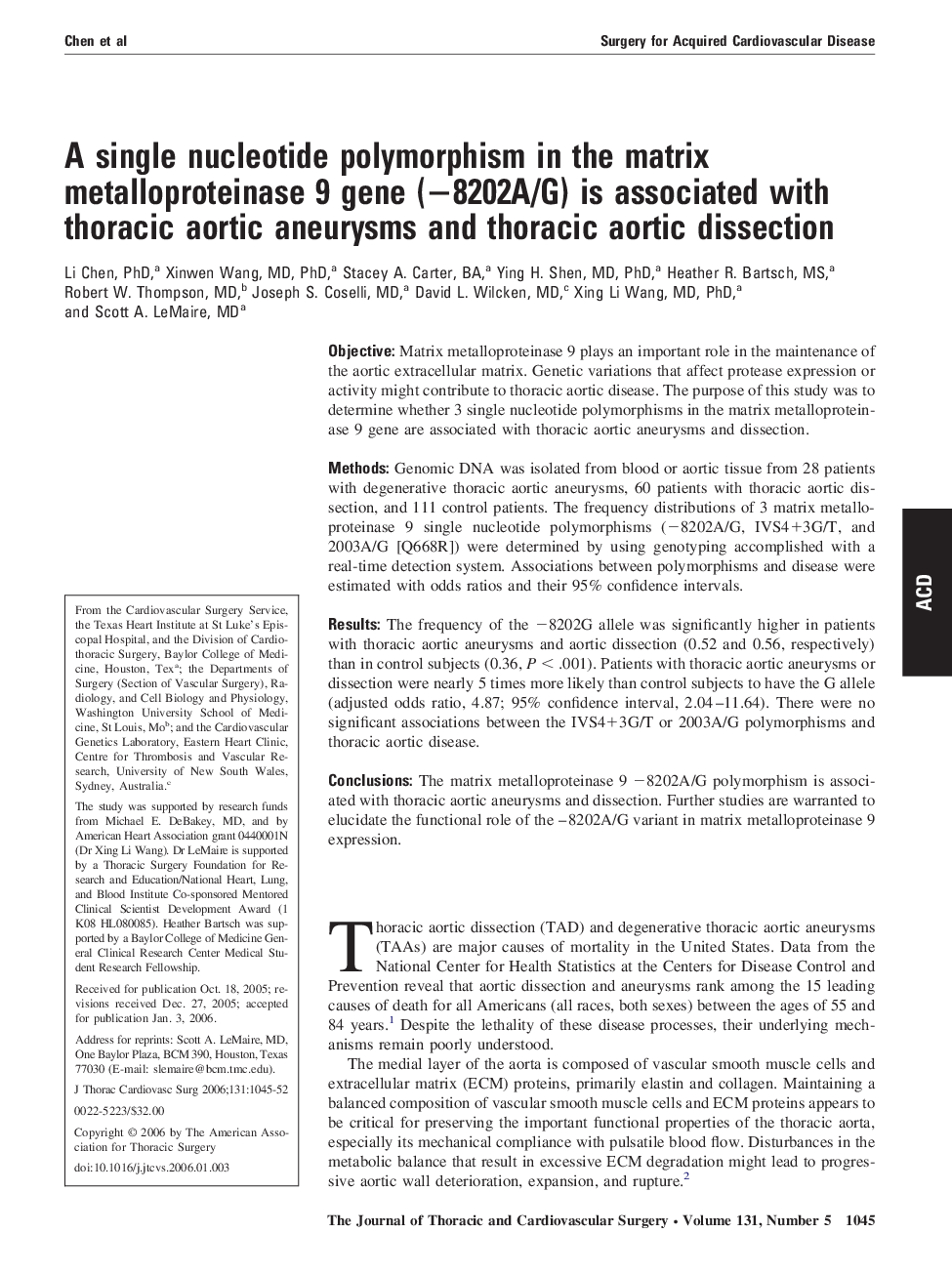| Article ID | Journal | Published Year | Pages | File Type |
|---|---|---|---|---|
| 2987032 | The Journal of Thoracic and Cardiovascular Surgery | 2006 | 8 Pages |
ObjectiveMatrix metalloproteinase 9 plays an important role in the maintenance of the aortic extracellular matrix. Genetic variations that affect protease expression or activity might contribute to thoracic aortic disease. The purpose of this study was to determine whether 3 single nucleotide polymorphisms in the matrix metalloproteinase 9 gene are associated with thoracic aortic aneurysms and dissection.MethodsGenomic DNA was isolated from blood or aortic tissue from 28 patients with degenerative thoracic aortic aneurysms, 60 patients with thoracic aortic dissection, and 111 control patients. The frequency distributions of 3 matrix metalloproteinase 9 single nucleotide polymorphisms (−8202A/G, IVS4+3G/T, and 2003A/G [Q668R]) were determined by using genotyping accomplished with a real-time detection system. Associations between polymorphisms and disease were estimated with odds ratios and their 95% confidence intervals.ResultsThe frequency of the −8202G allele was significantly higher in patients with thoracic aortic aneurysms and aortic dissection (0.52 and 0.56, respectively) than in control subjects (0.36, P < .001). Patients with thoracic aortic aneurysms or dissection were nearly 5 times more likely than control subjects to have the G allele (adjusted odds ratio, 4.87; 95% confidence interval, 2.04–11.64). There were no significant associations between the IVS4+3G/T or 2003A/G polymorphisms and thoracic aortic disease.ConclusionsThe matrix metalloproteinase 9 −8202A/G polymorphism is associated with thoracic aortic aneurysms and dissection. Further studies are warranted to elucidate the functional role of the –8202A/G variant in matrix metalloproteinase 9 expression.
